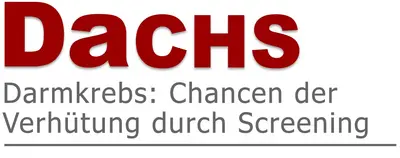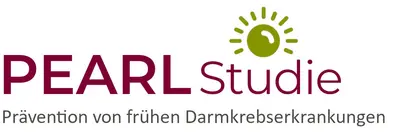Clinical Epidemiology and Aging Research
- Cancer Risk Factors and Prevention

Prof. Dr. Hermann Brenner
Head of department
The Clinical Epidemiology and Aging Research Division’s main areas of research include clinical cancer epidemiology, epidemiology of chronic age-related diseases and epidemiological methods.

Our Research
In the field of clinical cancer epidemiology, the group conducts large-scale epidemiological studies on new avenues of more effective cancer prevention and early detection, and on issues of the quality of medical care, prognosis and quality of life of cancer patients. Further large-scale epidemiological studies focuses on detection of risk factors, risk markers and prognostic factors of cardiovascular disease, diabetes mellitus and arthritis, thereby aiming to explore new avenues of enhanced prevention and management of these common and strongly age-related diseases. Most of the Division’s studies are conducted in interdisciplinary, oftentimes international collaborations with cancer registries, clinical partners and partners from basic research. Apart from the application of the highest methodological standards in these studies, a major area of research conducted in the Division is devoted to further development and enhancement of methods in epidemiological research.
Future Outlook
The Division will expand its research on early detection and screening for colorectal cancer to focus on questions of high relevance to the implementation of early detection programs at the population level.
Future research in early detection and screening will also be directed towards other gastrointestinal cancers. Due to demographic aging, along with steadily increasing cancer survival rates, the number and prevalence of cancer survivors in the population will continue to increase. The Division will therefore intensify its research on additional outcomes, such as quality of life, and the occupational and social participation of cancer survivors. An area of increasing interest in aging research will be to enhance the empirical evidence for preventive and therapeutic interventions in old age. Epidemiological aging research in the Division will increasingly address integrative and functional endpoints that have received comparatively little attention thus far, such as indicators of multi-morbidity and frailty, or indicators of functional limitations, as these are often more relevant for the elderly than single medical diagnoses. The Division will also contribute its expertise in recruitment and follow-up of population-based cohorts, including the areas of clinical epidemiology, aging research and epidemiological methods of the National Cohort, where 200,000 older adults are to be recruited in 2014-2018 and followed up many years afterwards.
Projects

Epidemiologic study assessing chances of prevention and early detection of various chronic diseases including cancer among older adults
Part I
Population-based longitudinal study including about 10,000 older adults
More about ESTHER (German only)

Population-based case-control study on changes of prevention in colorectal cancer by endoscopic screening examinations

The PEARL study is a large, nationwide study from Germany that specifically investigates the risk factors of colorectal cancer in the age group below 50 years.

Accompanying evaluation of innovative tests for early detection of colorectal cancer

Longitudinal study with follow-up of about 10,000 patients undergoing screening colonoscopy for up to 15 years.

Personalized Vitamin D Supplementation for Reducing or Preventing Fatique and Enhancing Quality of Life of Patients with Colorectal Tumor: Randomized Intervention Trial.

MIRANDA study (German name: “Mit dabei: Reha nach Darmkrebs”)

Lower gastrointestinal symptom burden by prophylaxis with synbiotics after colorectal cancer surgery (LEONORA)

The DKFZ and the Saarländischen Ministerium für Arbeit, Soziales, Frauen und Gesundheit are hosting the NAKO study center Saarbrücken (PI: Prof. Hermann Brenner/ Prof, Ute Mons, CO-PI: PD Bernd Holleczek).

Lung Cancer-related risk factors and their Impact Assessment
The aim of MOCCA ist to exmaine gender-specific differences in colorectal cancer screening

Optimization of polypharmacy in geriatric oncology
Team
64 Employees
-

Prof. Dr. Hermann Brenner
Head of department
-
Siawasch Alirezai Tekmedasch
Study Assistant
-
Ute Arnold
Study Assistant
-
Dr. Utz Benscheid
Medical documentalist
-

Dr. Megha Bhardwaj
Scientist
-
Petra Bittner
MTLA
-
Klara Böhm
Bufdi
-
Lea Borcherding
Bufdi
-
Zhixin Cui
PhD Student
-

Miriam Degen
PhD Student
-
Jie Ding
PhD Student
-
Katja Dziomba
MTLA
-
Claudia el Idrissi-Lamghari
Medical Diocumentalist
-
Clara Frick
PhD Student
-
Ahmad Friej
-
Ruojin Fu
PhD Student
-
Cornelia Gentner
Study Assistant
-

Tafirenyika Gwenzi
Scientist
-
Dr. Theodor Hanck
Medical documentalist
-
Dr. Thomas Heger
Medical Documentalist
-
Dr. Sandra Heinemann
Quality managment
-

Dr. Thomas Heißer
Scientist
-

Julia Hibbert
PhD Student
-
Franziska Himmelsbach
Medical documentalist
- Show profile

Prof. Dr. Michael Hoffmeister
Deputy head of deprtment, group leader
-
Bernd Holleczek
Scientist
-
Romana Kimmel
MTA, Head of laboratory
-

Leon Klimeck
PhD Student
-

Dr. Lena Koch-Gallenkamp
Project coordination
-
Cornelia Leimert
Study Assistant
-
Isabel Lerch
Medical Documentalist
-

Xianzhe Li
PhD Student
-
Zilin Luo
Scientist
-
Marko Mandic
PhD Student
-
Johannes Michaelian
-

Evelyn Nizik
Secretary
-

Idris Ola
PhD Student
-
Lei Peng
PhD Student
-
Toktam Pour
PhD Student
-

Dr. Janhavi Raut
Scientist
-
Fatemeh Safizadeh
PhD Student
-
Ulrike Schlesselmann
MTA
-
Ute Schneider
Study Assistant
-

Prof. Dr. Ben Schöttker
Group Leader
-
Sebastian Schwab
Medical Documentalist
-

Dmitry Sergeev
PhD Student
-
Teresa Seum
PhD Student
-
Sha Sha
Scientist
-
Dr. Marija Slavic
Scientist
-

Dr. Joshua Stevenson-Hoare
Scientist
-
Martin Stoffel
-
Folke Thormann
Study Assitant
-
Dr. Kira Trares
Scientist
-
Tomislav Vlaski
PhD Student
-
Youqing Wang
PhD Student
-
Huan Wang
PhD Student
-
Durgesh Wankhede
PhD Student
-
Anja Wolf
Study Assistent
-
Ruijie Xie
PhD Student
-
Qiming Yin
PhD Student
-
Tanwei Yuan
PhD Student
-
Zitong Zhao
-
Qiya Zhong
PhD Student
-
Dr. Natalia Zumkeller
Study Assistent
Selected Publications
Brenner H, Heisser T, Cardoso R, Hoffmeister M
Cardoso R, Guo F, Heisser T, ..., Ryzhov A, Hoffmeister M, Brenner H.
Heisser T, Peng L, Weigl K, Hoffmeister M, Brenner H.
Brenner H, Calderazzo S, Seufferlein T, Ludwig L, Dikopoulos N, Mangold J, Böck W, Stolz T, Eisenbach T, Block T, Kopp-Schneider A, Czock D, Tikk K.
Awards
Downloads
On this page we provide resources for download that have been developed by members of our divison or that we refer to in publications.
Get in touch with us

Evelyn Nizik
SecretaryPostal address:
